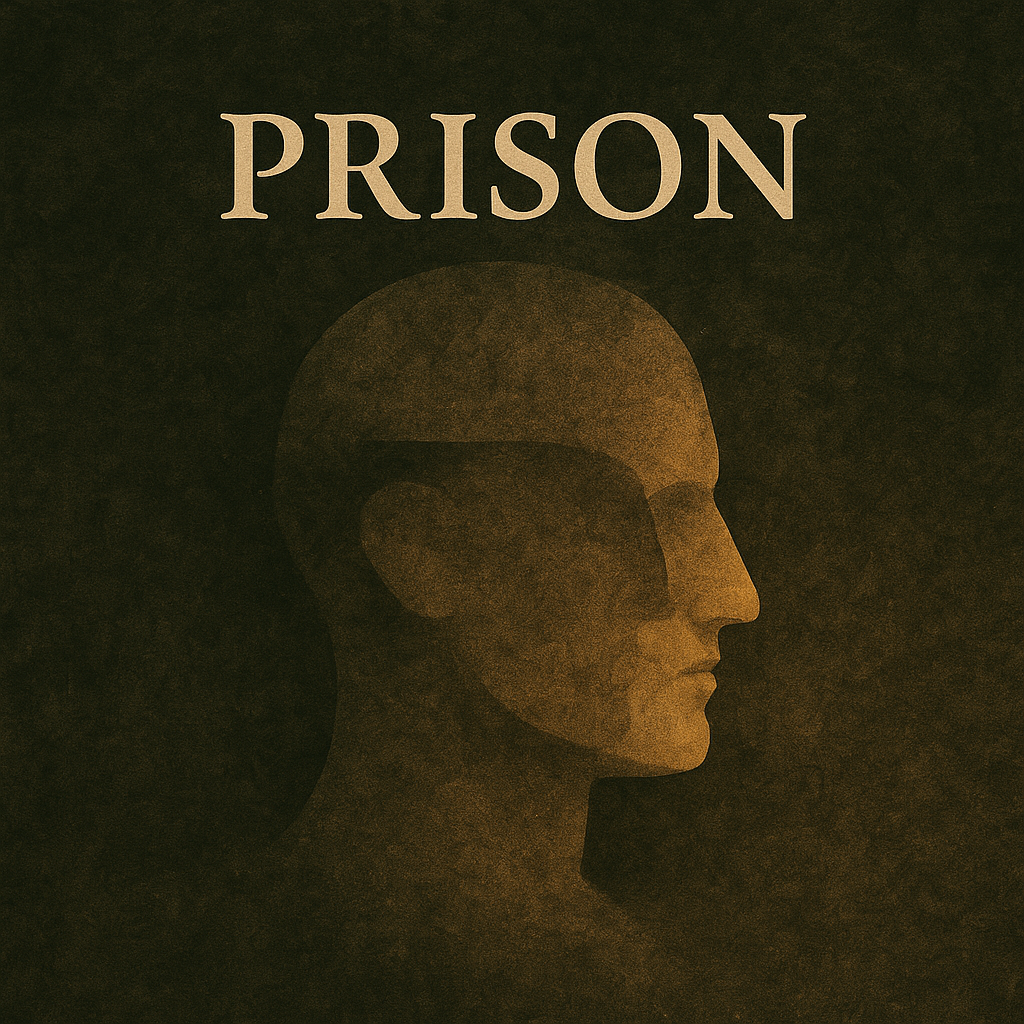We like to think of ourselves as free thinkers.
Rational. Independent. Self-directed.
But modern psychology tells a humbling story.
The mind is not a neutral observer.
It is a storyteller, a pattern-seeker, a comfort-seeker.
And unless we understand the forces shaping our beliefs, we are not thinking freely.
We are simply following invisible scripts.
In Thinking, Fast and Slow, Daniel Kahneman describes two modes of thought.
System 1 is fast, automatic, and emotional.
System 2 is slow, effortful, and deliberate.
Most of the time, System 1 is in charge.
And System 1 is riddled with biases.
Unless we constantly examine what we believe and why, we are not thinking.
We are rationalising.
The Mind Is Not a Neutral Observer
The human brain did not evolve to seek truth.
It evolved to help us survive.
And survival often depends not on accuracy, but on speed, coherence, and belonging.
If the mind can tell a simple story that feels good and fits in with the tribe, it will.
This is why true freedom of thought is not the default.
It is an achievement, and one that must be earned again and again.
Six Biases That Keep Us Blind
Here are six forces that shape your thinking more than you realise.
Knowing them is not enough.
You must watch for them, question them, and fight them constantly.
1. Confirmation Bias
We seek out information that supports what we already believe.
We ignore or dismiss information that contradicts it.
In a world of infinite information, this bias is deadly.
You can find "evidence" for almost any belief.
Without conscious effort, we do not question our beliefs. We reinforce them.
And the more certain we feel, the more dangerous this bias becomes.
Freedom of thought requires deliberately seeking out opposing views and listening with care.
Example:
Flat Earth belief persisted for centuries, despite mounting evidence from navigation, astronomy, and exploration. Once the belief had taken hold, people explained away contradictory evidence and focused only on what seemed to confirm their view.
2. Cognitive Dissonance
When faced with information that contradicts our beliefs or behaviour, we feel discomfort.
This is cognitive dissonance.
It creates a powerful urge to resolve the tension.
And the easiest way to do this is not to change.
It is to rationalise.
We tell stories to make the contradiction go away.
We twist facts, question motives, redefine terms, anything to protect the self-image.
But this is the path to stagnation.
If you cannot tolerate the discomfort of dissonance, you cannot grow.
For decades, many smokers denied or downplayed the health risks of smoking, even as overwhelming scientific evidence became public. Rather than quitting, many justified their behaviour by saying, "My grandfather smoked and lived to 90," or "Everything causes cancer these days."
3. Status Quo Bias
We prefer things as they are.
Change feels risky. Uncertainty feels dangerous.
This is not laziness. It is a deep evolutionary instinct.
The known is safe. The unknown is a threat.
But this instinct keeps us trapped in bad systems, bad habits, and outdated ideas.
Freedom requires recognising this pull toward the familiar and questioning it.
When seatbelt laws were first introduced in many countries, there was significant public resistance. Many people argued they were uncomfortable or unnecessary, despite clear evidence that seatbelts save lives. Today, it seems unthinkable to drive without one.
4. Narrative Bias
We are not creatures of fact. We are creatures of story.
We crave narratives that make sense of the world.
We seek coherence, not accuracy.
This is narrative bias.
We simplify. We explain. We create cause and effect even where there is none.
And in doing so, we distort reality.
We tell ourselves stories about why we succeeded, why others failed, why things are the way they are.
But stories are not truth.
They are maps.
And every map is a simplification.
Freedom of thought requires being willing to question the stories we tell ourselves.
Popular accounts of Apple’s success often focus on Steve Jobs' genius, ignoring the many failures, team contributions, and external factors that shaped the company’s rise. The story is simplified because the human mind craves a hero’s journey.
5. Availability Bias
We judge the likelihood of things by how easily examples come to mind.
If something is vivid or recent, we overestimate its importance.
This is availability bias.
If you recently read about a plane crash, you may fear flying, even though it is far safer than driving.
If the news constantly shows crime, you may think the world is falling apart, even when crime is declining.
Our picture of reality is skewed by what we have seen and heard recently.
Freedom requires remembering this. The loudest events are not the most important.
After a few well-publicised shark attacks, public fear of swimming can spike dramatically, despite the minuscule actual risk. This is one of the most classic, safe examples of availability bias.
6. Social Conformity and Identity-Protective Cognition
Perhaps the strongest bias of all is the pull to belong.
We are social creatures.
We crave acceptance.
Social conformity leads us to align our beliefs with our group.
We absorb the assumptions of those around us.
Even more subtly, identity-protective cognition leads us to defend beliefs that are tied to our identity, regardless of evidence.
If a belief is "who I am," or "what my group believes," we will fight for it, not because it is true, but because it protects our belonging.
This is why even highly intelligent people can believe absurd things.
Their identity is at stake.
Freedom of thought requires the courage to stand alone.
As Marcus Aurelius wrote:
"The opinion of 10,000 men is of no value if none of them knows anything about the subject."
You must know why you believe what you believe, not just that others believe it.
Consider the cultural shift around veganism. For many years, choosing not to eat animal products was viewed as strange or extreme in many social circles, regardless of the ethical or health arguments behind it. People resisted not because the evidence was lacking, but because eating meat was a central norm within their group or identity.
Even today, in some communities, adopting a vegan diet can provoke strong reactions, not because of nutritional facts, but because it challenges group identity and tradition.
Why This Matters
Why does any of this matter?
Because if you do not see these biases, they will run your life.
You will think you are thinking.
But you will simply be defending your tribe, your past, your identity, your comfort.
And the more certain you feel, the more dangerous the sleep becomes.
As Kahneman warns in Thinking, Fast and Slow, certainty is often a feeling, not a sign of accuracy.
System 1 loves certainty.
But truth requires the humility of System 2, slow, effortful, questioning.
The Practice of Questioning
How do we fight these biases?
Not with cleverness.
Not with superior intelligence.
With discipline. With humility. With practice.
Here are some ways to begin:
- Make dissonance your friend. When you feel uncomfortable, lean in.
- Regularly ask yourself: What if I am wrong?
- Seek out opposing views, and steelman them. Try to articulate the best version of the other side.
- Notice your reactions. If you feel defensive, ask why.
- Question your stories. Ask: Is this true, or is it just a story I like?
- Remember that certainity does not equal truth.
- And above all, be willing to walk alone if truth demands it.
Closing
Most people do not think. Including me.
They rationalise. They conform. They defend.
If you want to be free, you must question everything.
And you must know why you believe what you believe.
Otherwise, you are not free.
You are simply playing out a script written by others.
The mind is not a neutral observer.
Freedom of thought is not the default.
It is an achievement.
This post contains affiliate links. If you buy something through them, I may earn a small commission at no extra cost to you.

